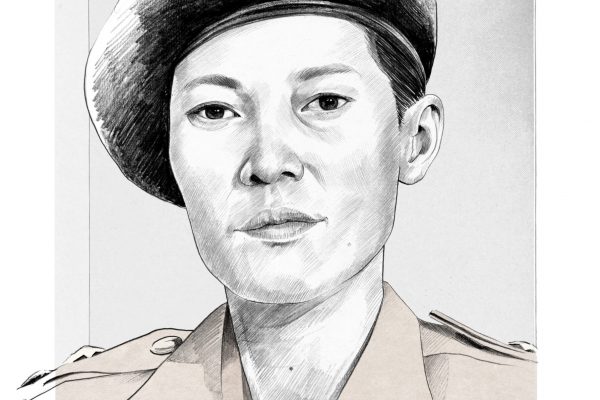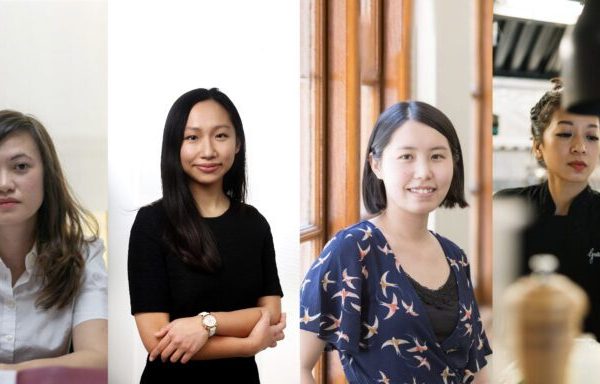The Pitch: Once a Mama, Always A Mama discusses marketing with Diana Wu David
Marina Watt experienced grief and hopelessness after having a miscarriage last summer. But she didn’t let the loss engulf her. On the contrary, she was motivated to launch OAMA (Once a Mama, Always A Mama), a platform she co-founded in 2017 with friend Babie Li and social worker May Chung to provide emotional support and reliable information to women who, like her, went through that same loss.
Although the Hong Kong government does not track miscarriage statistics for losses before 24 weeks, a 2013 survey by the Hong Kong College of Family Physicians estimates that miscarriages could affect as many as 50 per cent of pregnancies. Given a dearth of government programmes dedicated to the issue, OAMA wants women to know they’re not alone – that there is a support network to help them work through the grief and physical pain that comes with losing a child.
To help OAMA elevate its reach, we introduced Watt to mentor, strategist, and innovator Diana Wu David. Also affiliated with not-for-profit mentorship programme Mentor Walks, David focuses on coaching and investing in entrepreneurs in Asia. We’re sharing the conversation, which has been edited for brevity, as part of Ariana’s mission to inspire social enterprises.
Marina Watt: Last summer, I experienced a miscarriage with my second child. I went to Queen Mary Hospital, but they had a long queue and sent me home. I read a vast amount of information online, but I didn’t know what was accurate… so I went to a private hospital where there was no queue.
They diagnosed the miscarriage and advised me to go home, rest for a week, then come back for an ultrasound. I was feeling hopeless, because there wasn’t a community to lean on. That’s when I had the idea for OAMA.
Diana Wu David: I can relate to that. For three years, I would get pregnant and then miscarry. After I finally had my first child, I honestly thought I’d never have more children. But within six months, I was pregnant again. Ultimately, I had three children.
Watt: How old are your children?
David: 12, 11, and 8. How about you?
Watt: Four and a half.
David: For me, the most helpful thing was knowing I wasn’t alone. So what issues are you trying to address with OAMA?
Watt: We do three things: provide an online platform for information; organise free counselling workshops with Hong Kong University’s social work department; and spread awareness about miscarriage. In Hong Kong, miscarriages are still taboo.
In my case, the first reaction I got from friends was: ‘Were you carrying heavy things? Were you exercising?’ Since it’s the woman who carries the baby, I think it’s natural to assume she has done something wrong.
However, we want to educate Hong Kong citizens, so they [can] better understand the medical reasons for miscarriages.
David: What’s your biggest challenge?
Watt: Marketing and financing. We launched a fundraising campaign last December on Next Chapter [a crowdsourcing platform for social enterprises]. We aimed to raise HK$100,000 but only raised HK$10,000. We are trying to change people’s mindsets, but it takes time for many to understand this issue.
I think one of our primary concerns is that we need money to run the services. We are all just volunteering our time. We need help to develop our website and workshops. Whenever we need to organise a workshop, we need to pay to rent that space. We want to do some marketing, some public relations work… but it costs money.
David: When a woman has a miscarriage, where does she go?
Watt: I think she first looks for help online.
David: Yes, I think online is usually the first port of call, so you need to optimise how OAMA can be the first result when women search for terms related to miscarriages – buying online advertising shouldn’t be expensive. I doubt these are highly competitive adwords.
You might even ask companies like Facebook to support you as an NGO with pro-bono advertising.
In addition, you could link up with marketing students, instead of hiring some expensive specialist.
Working with the medical establishment is also very important. Once you have quality, trustworthy information on your website, doctors could refer women to OAMA as the go-to resource in Hong Kong.
In terms of workshops, you could move them to a digital platform to save money. Another thing you can tap in to is a peer-to-peer support system. You can train those women who have had miscarriages to be a first port of call, even before professional social workers.
You can also enlist the support of high-profile people to share their own stories to raise awareness about miscarriage. Basically, you really need to find a community of people who are as passionate as you are.
For fundraising if, as mentioned, you need HK$100,000, I’d find someone who is willing to invest in you, rather than trying to raise it online.
Watt: I agree with you. We need to find both ‘regular’ and high-profile people to talk about this issue, as well as more medical professionals and volunteers. After we started the NGO, we worked with a woman named Grace who volunteered her photography skills to design a social media campaign in which women shared their stories. We haven’t launched it yet, we are aiming to start next year.
In addition to building your community, I think you need to leverage new studies, new reports, and create a sense of urgency. But I feel you are reluctant about doing that. Am I correct in sensing that?
Watt: Frankly speaking, all of the founders have full-time jobs and we can’t be as devoted to OAMA as we’d like.
David: Do you want to quit your job?
Watt: Not so soon…
David: I understand, and you’re a mum.
Watt: It’s just a lot to juggle. We are going through a tough time at the moment, as we try to move OAMA forward with little time to spare.
David: Perhaps you want to consider partnering up with a larger international organisation that’s addressing the issue of miscarriage. That way, you can work with a well-resourced NGO while focusing on local Hong Kong issues.
Watt: Yes, that’s something on our minds. A few weeks ago, we were approached by the Women’s Commission [a government organisation]. The chair is very interested in our project and we’re planning to discuss how we can fold OAMA into a government-funded NGO.
David: I think it would make sense for the government to fund you. It makes sense for doctors and hospitals to fund you, too, because you’re providing valuable information and support to women.
Watt: Yes, in the UK and even in China, they have NGOs or similar support platforms. In those cases, the hospitals fund the NGO.
David: What if the government talks to you for three years… and then says no?
Watt: We would then have to try crowdfunding again. I think there are people in Hong Kong who are willing.
David: Yeah, I think finding doctors would be a good place to start. Also, women’s organisations. I would also talk to Rita Ching [deputy CEO] at The Women’s Foundation – even just to plant the seed, because she has a wide network. Also, ZONTA [a service organisation with a mission of advancing the status of women] is worth contacting. It’s important for you to tap into these communities of power women. They would be happy to help.
Watt: It’s been a year since we founded our platforms. Sometimes I get stuck on how to move things forward.But whenever I receive Facebook messages, I see women really do need support. It reminds me of why I set up OAMA in the first place.
David: Ultimately, this is about a community of women.
Watt: Yes, this is women supporting women. When a miscarriage happens, you think it’s the end of the world to you. We want to let women know that they’re not alone.
Need to know
From surprising statistics to labour laws, we take a look at the current landscape around miscarriages.
A miscarriage is defined as “the expulsion of the products of conception which are incapable of survival after being born before 28 weeks or pregnancy.”
An estimated 50 per cent of pregnancies worldwide end in miscarriage.
Roughly 1-2 per cent of women worldwide suffer from recurrent miscarriages, defined as three or more consecutive miscarriages.
Women in Hong Kong who lose a child before 28 weeks are currently not entitled to any maternity leave.
If a woman misses work due to a miscarriage or related medical appointments, the absence is counted as sick days or partial sick days.
Hong Kong’s Hospital Authority classifies fetuses miscarried before 24 weeks as “medical waste”.
About the Contributors
Diana Wu David
With 20 years of global business management, entrepreneurship and investment experience, Diana Wu David focuses on transforming how we work in an age of technology disruption and globalisation. She is a coach and mentor to young change-makers in her community and serves on the boards of the American Chamber of Commerce in Hong Kong, Shared Value Project HK and Teach4HK.
Learn more dianawudavid.com
OAMA
Founded in 2017, OAMA offers a variety of services for women who have experienced miscarriage. The social enterprise provides a support network, shares reliable information, debunks social misconceptions, and holds workshops with certified social workers to help mums work through their grief.
Learn more oamahk.org
Mentor Walks
Mentor Walks is a bimonthly event series that brings together mentors and mentees for a walk-and-talk in Hong Kong. The organisation aims to support emerging female leaders with insights from veteran executives across business, education, and not-for-profit sectors.
Learn more mentorwalkschina.com

